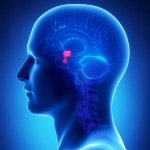Schizophrenia is a long-term mental health condition that causes a range of different psychological symptoms. These include: hallucinations (hearing or seeing things that do not exist), delusions (unusual beliefs that are not based on reality and often contradict the evidence), muddled thoughts based on the hallucinations or delusions, and changes in behaviour. Doctors describe schizophrenia as a psychotic illness. This means that sometimes a person may not be able to distinguish their own thoughts and ideas from reality.
Pilot study suggests that CBT may be a viable alternative to antipsychotics for people with schizophrenia, or does it?

People with schizophrenia stop taking their antipsychotics for a wide range of reasons (e.g. debilitating side effects or a belief that they will not help them), but when they do health professionals often find it extremely difficult to care for these patients, because the alternative treatment options available to them are very limited. Of course, [read the full story…]
















